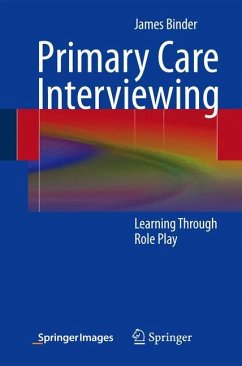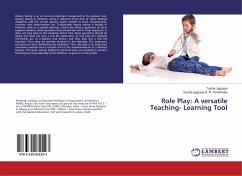Primary care is complex, unpredictable, and requires a biopsychosocial orientation. An indispensable teaching resource, Primary Care Interviewing: Learning Through Role Play thoroughly details how to use role play to teach the basics and more complex aspects of medical interviewing skills to trainee clinicians. Role playing is ideally suited to teach clinicians how to interview and relate to patients, and this unique and concise title includes not only sample role plays and dialog but also a wealth of accompanying online video role plays to enhance the learning process. Part one presents how to teach basic interviewing skills needed for effective communication, such as joining, promoting self- awareness, open-ended communication, dealing with emotions, structuring skills, and asking questions to uncover concerns and related beliefs, or theories of illness. Part two addresses the teaching of specific, more complex interviewing skills, such as addressing a patient's mental health issues, sexual health, somatic conditions, and giving bad news.
From the reviews:
"This book considers the utility of a role-playing model in medical training programs. ... The potential audience is every person in every aspect of healthcare from clinicians in training to nursing students to students in ancillary modalities, as well as anyone who works with the public such as social workers and law enforcement officers." (Vincent F. Carr, Doody's Book Reviews, February, 2014)
"This book considers the utility of a role-playing model in medical training programs. ... The potential audience is every person in every aspect of healthcare from clinicians in training to nursing students to students in ancillary modalities, as well as anyone who works with the public such as social workers and law enforcement officers." (Vincent F. Carr, Doody's Book Reviews, February, 2014)








